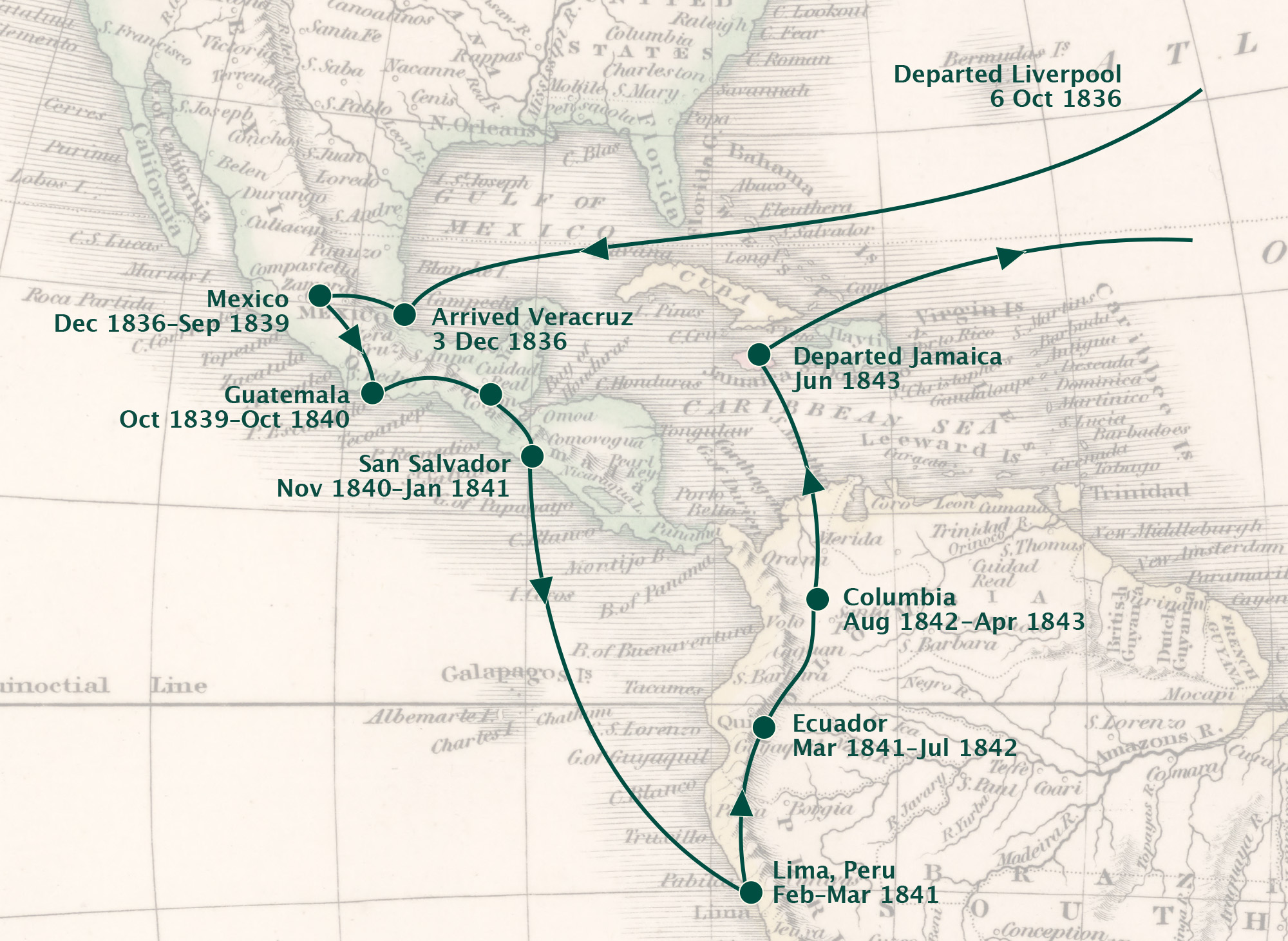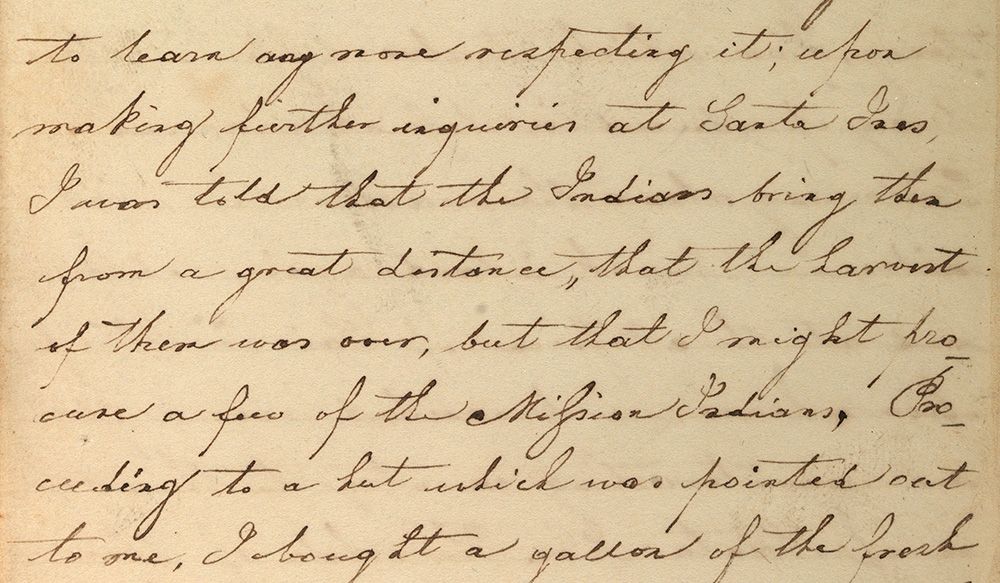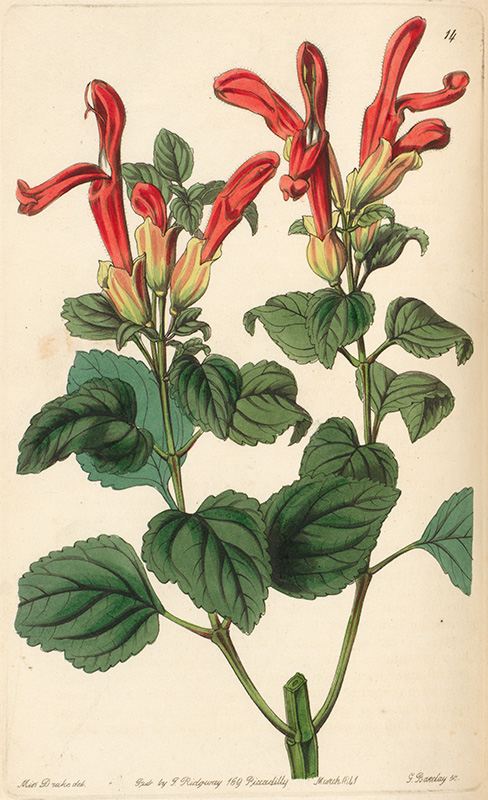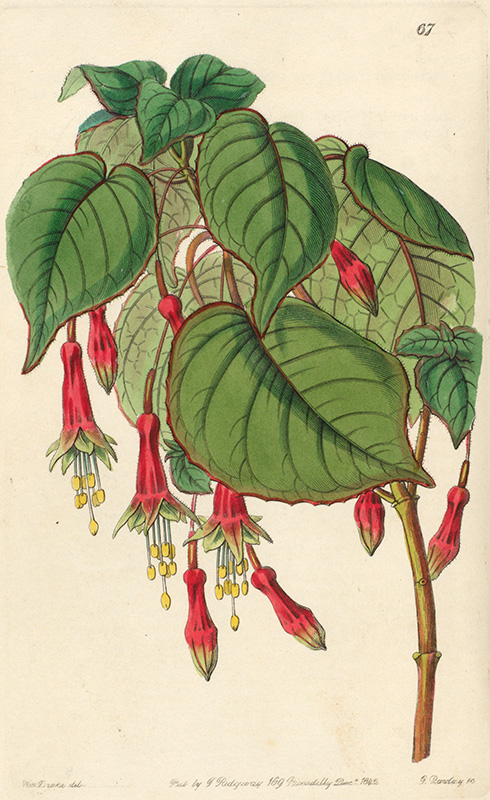Insights into our collections
RHS Plant Collector Archive: Karl Theodor Hartweg
Karl Theodor Hartweg was the Horticultural Society’s seventh plant collector, spending several years travelling around Central and South America between 1836 and 1843.
Who was Theodor Hartweg?
Karl Theodor Hartweg (1812-1871) was a German-born botanist, and the Horticultural Society’s seventh plant collector. Hartweg was born in the Grand Duchy of Baden, in what is now southern Germany. His father, Andreas Hartweg, was garden inspector for the court of Karlsruhe, the then capital of Baden. After his expeditions for the Horticultural Society Hartweg returned to Baden, working in Frankfurt until his death in 1871.
Where did Theodor Hartweg collect plants from?
Hartweg undertook two expeditions for the Horticultural Society. The first began in 1836 and took him to Central and South America. This expedition was planned to last three years, but Hartweg did not return to London until 1843. For his second expedition in 1845, Hartweg crossed the Atlantic Ocean once more, to collect specimens from Mexico and California.

Map of Hartweg’s first expedition to Central and South America. The place names given are those used by Hartweg in his account.
How did Hartweg collect plants?
Hartweg relied upon a range of people on his expeditions, as guides, plant collectors, consultants, labourers and, translators, though he rarely mentions and never names them in his account. In Mexico, he depended heavily on a male servant (referred to as a ‘mozo’). The mozo is only mentioned after he makes his “escape” from a hospital where he was staying to recover from an unspecified illness.
In California, Hartweg describes procuring pinecones brought by Native American merchants “from a great distance”, allowing him to collect plants that were out of season during his trip. He alludes to the dangers inherent on his trip, including the risks to health, and internal insecurities. In January 1842 he reported that a declaration of war between Ecuador and Peru potentially threatened his work. He struggled to send his plant boxes to England due to trade restrictions resulting from wars in Mexico and in California.
What plants did Hartweg collect?
We know a lot about the specimens that Hartweg sent back to England, because they were documented in a plant accessions book that recorded plants and seeds arriving at the Horticultural Society’s garden in Chiswick. This book records plants sent by Hartweg from Ecuador, Columbia and Jamaica. Amongst the plants introduced by Hartweg were varieties of fuchsias, salvias, lupins, as well as orchids and cacti.
What’s in Theodor Hartweg’s papers at the RHS Lindley Library
The Hartweg papers held at the Lindley Library are organised by expedition. Papers relating to Hartweg’s first expedition include correspondence between Hartweg and the Horticultural Society, and Society correspondence relating to Hartweg’s expedition. Also included is a plant accession book for the Horticultural Society’s experimental garden at Chiswick.
Papers relating to Hartweg’s second expedition include his expedition journal, correspondence between Hartweg and the Horticultural Society, further Horticultural Society correspondence relating to the expedition, and another plant accession book for the Horticultural Society’s garden at Chiswick.
This Insight draws upon research carried out by Dr Sarah Easterby-Smith and Dr Elena Romero-Passerin (University of St Andrews) in 2021-2022, commissioned by the RHS.
Discover more
Published
9 May 2025
Insight type
Short read


